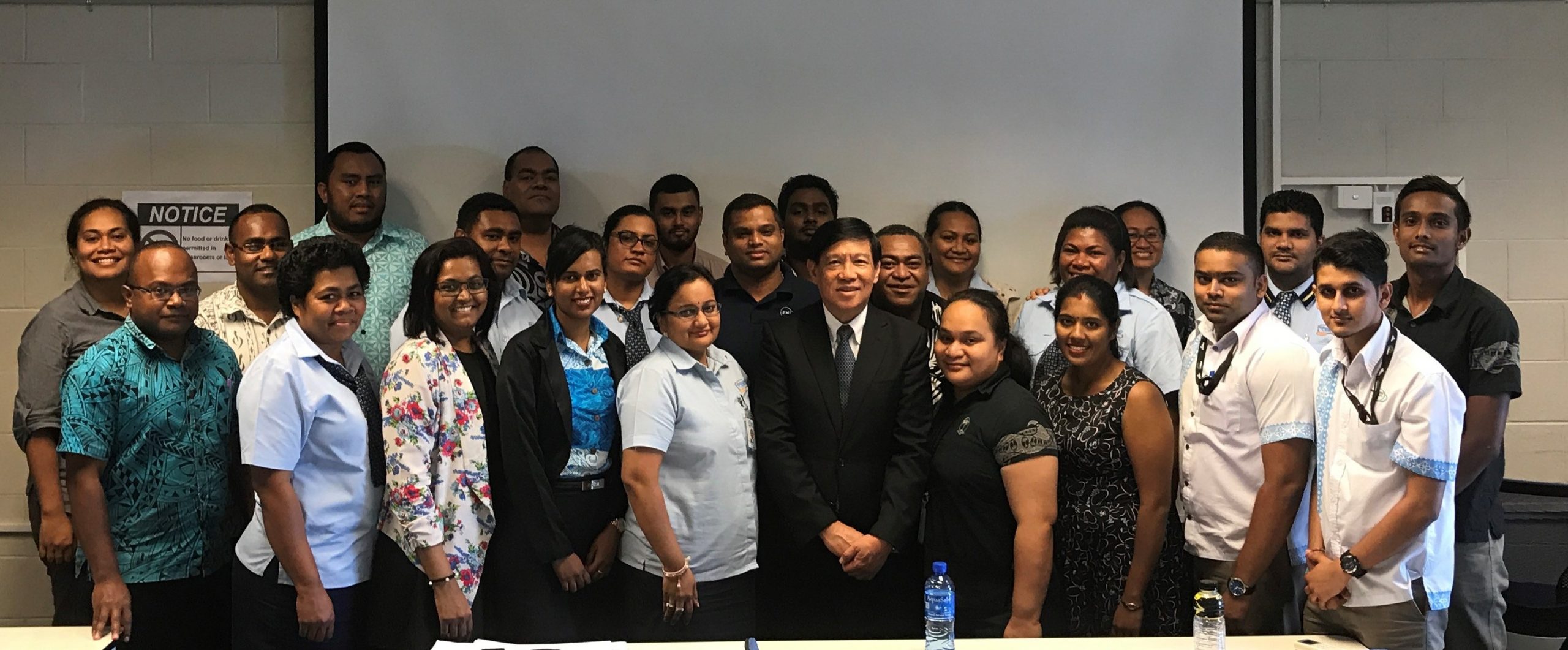
Select Page
Fundamental rethinking and radical redesign of business processes to achieve dramatic improvements in critical measures of performance are necessary for long-term organizational success. This includes business process reengineering (BPR) of core elements to achieve overall improvements in productivity, cycle times, and quality.
As part of its initiative to build the capacities of national productivity organizations (NPOs) in member countries, the Asian Productivity Organization (APO) in collaboration with Fiji’s National Training and Productivity Centre (NTPC) recently completed a five-day training course on BPR in Suva, 2–6 October 2017.

The course was organized under the Technical Expert Service Program of the APO, which aims to provide assistance to NPOs and related organizations to strengthen their institutional capacities and upgrade technical competencies in line with individual member country needs for productivity improvement. Twenty-six participants from three government agencies and a local bank in Fiji attended.
Inaugurating the training course, NTPC Deputy Director Sachin Deo emphasized the importance of adopting effective, efficient business processes to meet stringent customer requirements in the dynamic era of Industry 4.0. APO-assigned Expert Hoclink Systems & Services Pte. Ltd. Managing Director and Principal Consultant George Wong from Singapore conducted the course.
Reengineering projects typically involve multiple process changes that make the entire exercise complex. As organizations continue their BPR journeys, issues related to project implementation become a major concern. Hence for a BPR initiative to succeed, it is essential that those involved have a thorough understanding of all factors directly impacting each project phase.
The interactive training course was designed to provide participants with BPR methodology and guidelines, as well as insights on how BPR can be implemented systematically to create higher value and achieve the desired outcomes of organizations, including sustainable productivity and greater competitiveness.
Participants divided into practice case study teams to understand and apply BPR tools and techniques, from modeling and analyzing business processes to creating redesigning, and implementing innovative solutions to meet customer requirements and expectations.